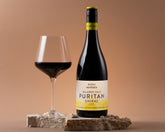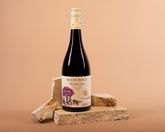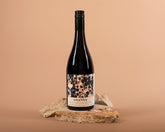You may be scratching your head as to what the different terms on the label such as Biodynamic or Organic actually mean and what is the difference (if any) between the two. Lucky for you we have made things simple by defining these terms, so you can make a more informed decision when choosing which wine to drink.
First, a brief introduction to the wonderful industry that is Australian wine:
Australia makes around 4% of the worlds wine production and is its 5th largest exporter. Despite being a small producer we have some of the worlds best wines, just head to any of our featured wines and check out their awards and accolades.
There are over 100 grape varieties grown within the various wine regions or ‘microclimates’ within Australia. The top five are: Shiraz, Chardonnay, Cabernet Sauvignon, Merlot and Sauvignon Blanc. Although, I’m sure you will recognise some others such as Grenache and Pinot, and perhaps they more adventurous may even know some of the lesser varieties such as Mataro, Pet’ Nat, Viognier and Sangiovese just to name a few!
Usually, when thinking of Australian wine what springs to mind is the Barossa Valley or McLaren Vale in South Australia. And although these regions have beautiful wine varieties, Australia has about 70 wine regions and at least 2500 wineries!
Australians make 1.3billion litres a year of wine, which is the same as 145 million cases!. Of this, about 1.3% of wine drunk by Australians comes from sustainable wineries. Certified Organic wines dominate 93% of this sustainable wine sector, with biodynamic wines about 7%.
Organic wineries are slowly becoming accepted in the Australian market as more health and environmentally conscious consumers are carefully choosing which drops to drink. This is a stark contrast to Europe, where organic production is more widely excepted, but thankfully more choice is gradually becoming available and as consumers like you become more conscious, wines that are sustainable, organic or preservative free are starting to dominate interest in the market.
Ok, so what is Organic wine?
Quite simply an organic wine is a wine made from cultivated grapes whose vinification (wine cultivation) respects the principle of organic farming. This means that in the vineyard, the use of fertilizers or chemicals (pesticides, insecticides, fungicides, fertilizers, etc.) is prohibited. However, most sustainable wineries take into account all interconnected practices when making their wine, such as; water and energy usage when producing the wine, which makes for a wine that has as little effect on the local environment as possible.
What about Biodynamic?
Biodynamic takes things a step further.
Generally, biodynamic wineries must use all raw materials (such as the soil, water, fertiliser etc.) from within the vineyard itself and reuse, recycle or repurpose as many raw materials as possible to minimise waste and energy consumption.
An example is Gemtree wines of McLaren vale who are totally self sustainable and use techniques that interweave the health of soil, grapes and local biodiversity. They use animals to fertilise their grapes, recycle their water and use solar power too!
For the differences between Organic, Biodynamic and Sustainable wine practices, refer to our handy chart.
So what does that mean for you?
With the ever-increasing pressures of climate change, winegrowers and winemakers more than ever need to be knowledgeable about sustainable wine practices.
In the 2020-21 financial year period alone, the Australian wine sector emitted 1,770,997 tonnes of carbon dioxide into the atmosphere. This is roughly equivalent to the emissions produced from a full jet plane doing 609 laps of the world! 49% of these emissions are due to the winemaking process itself, where only 29% is from transportation to market (including Australia and overseas).
Not only this, but 87% of producers rely on irrigation water to grow their grapes. It takes 6 gallons of water to produce a gallon of wine, or 120 litres of water for just 1 glass of wine!
Thankfully, organic and biodynamic vineyards are leading the chase and sustainable water practices during wine production are an important factor in their certification. South Australians in particular are pretty switched on when it comes to wine making where techniques such as using natural water sources and re-using wastewater as key aspects in being sustainable.
If climate change continues, in less than 10 years (by 2030), our winemaking ability could drop by almost 10%. Due to the increasing warm conditions, favourite grapes such as pinot in regions of SA like Mclaren vale and Adelaide Hills could die out altogether as the climate becomes more arid. It also exposes vineyard workers to working in hotter conditions for longer, as at the moment they may only work 5-10 hot days each wine season, but could be working 40-60 days in the heat in coming years.
That's why sustainable wine making practices are critical.
And that’s why we believe sustainability is key when it comes to wine and firmly believe that the best wines are organic and biodynamic.
When you purchase from us, you help support wineries with sustainable wine practices.
Are there any other differences?
Organic wines are not only good for the environment, but healthier for you too! In general, organic wine grapes are much healthier and therefore produce heartier skins and higher concentrations of all of those good for you anthocyanins and antioxidants, including polyphenols and cardio-friendly resveratrol.
At Guilt Free Wine we have done all the hard work for you by exploring the best certified organic and biodynamic wineries Australia has to offer! We have put together a curated selection of wines that are better for you and the environment, which we know you will love! Head to our 'Pre-Selected Boxes' or 'Gifts' for an easy choice or start to 'Create Your Bespoke Box' today!!







